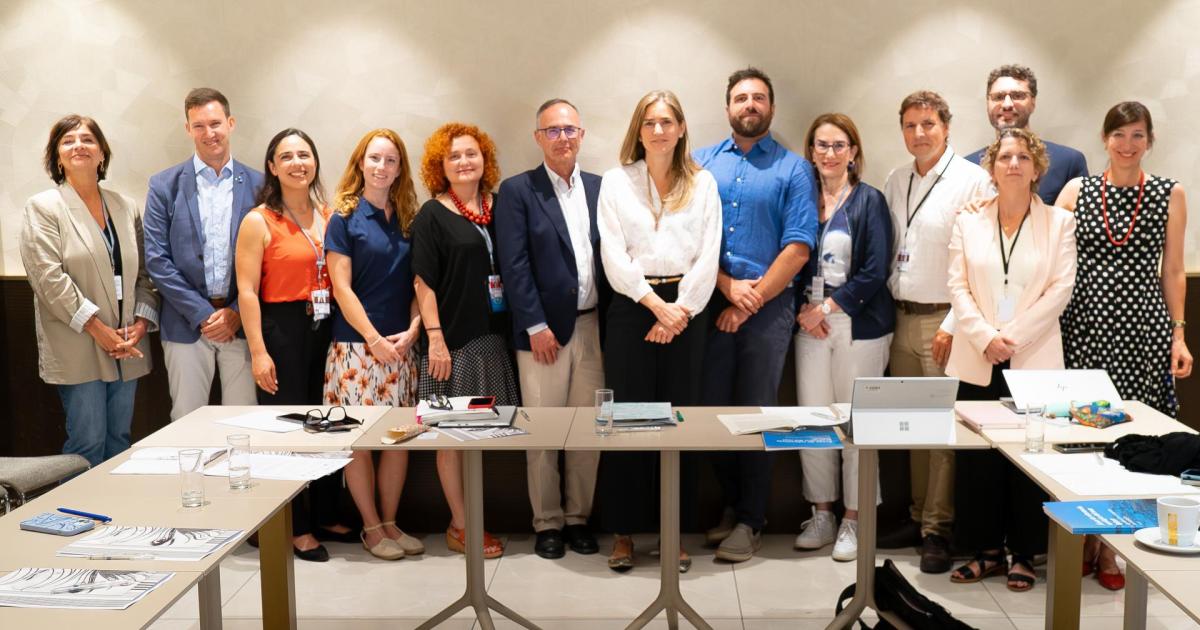By Aniol Esteban
In a world shaped by conflicts, crises, and emergencies, getting marine conservation on the global political agenda is no easy task. But this June, Nice has done just that. The third United Nations Ocean Conference (UNOC3), held in the capital of the French Riviera, has put the sea at the centre of international debate.The fact that this meeting took place in the Mediterranean, less than 500 km from the Balearic Islands, represents a unique opportunity for a region that has not always received the attention it deserves, despite being key to the future of marine conservation. The islands have much to offer, but also much to learn.
Today, I would like to talk about some of the milestones and advances that Nice has left us with. The Biodiversity Beyond National Jurisdiction (BBNJ) treaty for the protection of the high seas has made significant progress. With nearly 60 countries about to ratify it — including Spain, which was the first country in Europe to do so — the treaty is expected to come into force in 2026. This is a giant step forward for the protection of those areas of the high seas that are not under the jurisdiction of any state but are essential for the ecological balance of the planet.
Countries such as Portugal and France have made firm commitments in the declaration on strictly protected marine areas – i.e. areas closed to fishing – and the creation of marine sanctuaries and life refuges that are the pantry of the sea and guarantee the future of the fishing sector.
Nice also reminded us that plastic and noise pollution are issues that deserve more attention and, most importantly, more action. The Wake-Up Call on Plastic Declaration has called for greater ambition to eradicate plastics from the sea, while more than 35 countries, including Spain, have joined the High Ambition Coalition for a Silent Sea. Underwater noise seriously affects dolphins, sperm whales, and other marine species, but it also harms us as a society. And with the arrival of summer, this noise spreads throughout the Balearic coastline, not only underwater, but also on beaches and in coves.
At the national level, we also have some news. The Spanish government has committed to finishing 40 of the 80 pending management plans for marine protected areas (MPAs) in the next 12 months. Some of these plans affect Balearic waters. Spain has already declared 30% of the Mediterranean Sea under some form of legal protection, but less than 5% has a management plan.
Spain has also committed to advancing its commitment to the 10×30 target, which involves creating a network of marine sanctuaries covering at least 10% of the sea, but has not explained how. At Marilles, we have been working with a group of experts to identify ecologically significant areas of the Balearic Sea that deserve to be protected as marine sanctuaries. This is a roadmap that will enable progress in the effective protection of our marine environment.
Marilles was present in Nice, both in the audience and on the stage. And we were there through countless conversations in the corridors and over coffee. We had the opportunity to meet with Vice-President Sara Aagesen, together with other representatives of civil society, to call for greater commitment to marine conservation. We presented the Balearic Blue Deal on Mediterranean Day. We explained everywhere how successful the Balearic fishing fleet is in achieving exceptional results in catches and profits thanks to efficient management and a reduction in effort and capacity, combined with a network of MPAs which, although there is still much room for improvement, are already yielding results.
Along with the Med Sea Alliance and Together for the Med, the two main alliances for marine conservation in the Mediterranean, we presented the results of the study identifying areas of maximum ecological value in the Balearic Sea. This study was inspired by Kike Ballesteros, a key figure in marine conservation who died recently but continues to guide us through his work and the legacy he left to so many of us.
Nice has been a mirror and a loudspeaker. A mirror that shows us what we can improve, and a loudspeaker that reminds us that the sea needs more protection, less noise, and more courageous political action.
